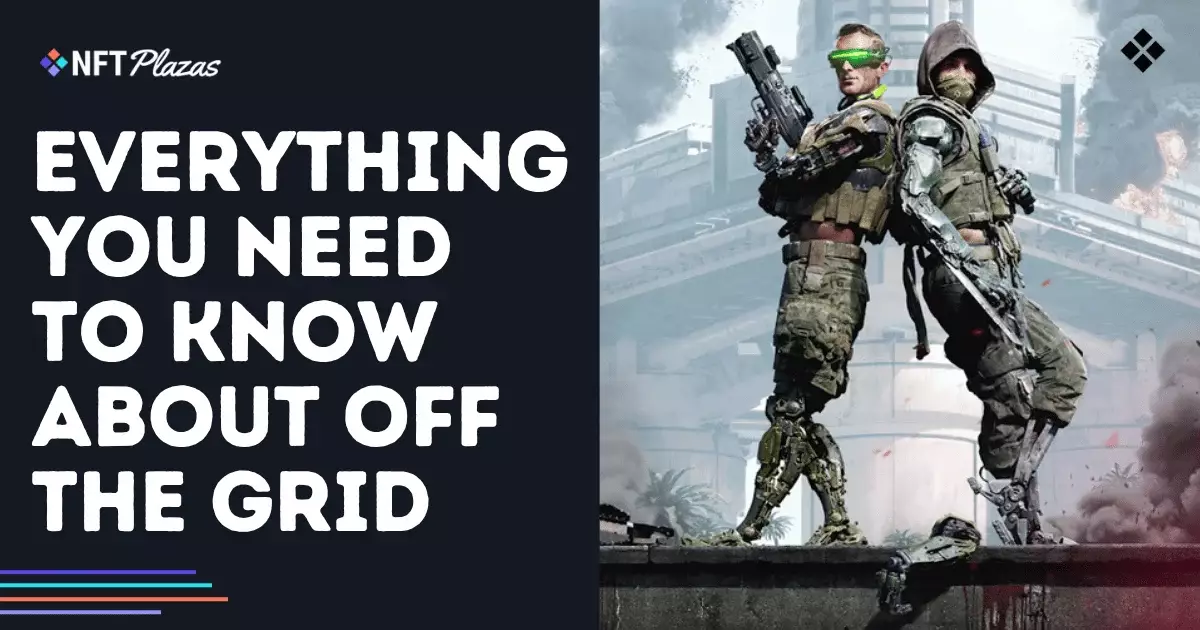In the constantly evolving landscape of battle royale games, Off The Grid presents itself as an innovative synthesis of cyberpunk aesthetics, advanced gameplay mechanics, and the controversial allure of blockchain integration. The game, developed under the visionary eye of filmmaker Neill Blomkamp, aims to captivate players through its striking visuals, cyber-enhancements, and player-driven economy. Yet beneath its neon-lit surface lies a series of critical shortcomings that threaten its long-term viability and reputation. As a center-right perspective aligns with a call for responsible innovation and pragmatic advancement, it becomes apparent that Off The Grid’s ambitious promises often outpace its actual deliverables.
Its allure is undeniable—impressive Unreal Engine 5 visuals, depth in cybernetic customization, and a universe enriched by Blomkamp’s distinctive storytelling. However, these high ambitions are hindered by operational issues: performance instability, unbalanced gameplay, and a reliance on fragmented systems like NFTs that remain optional but symbolically divisive. When a game’s foundational mechanics—like fair matchmaking and seamless gameplay—are compromised, the illusion of cutting-edge innovation morphs into a problematic distraction from core quality. The question for discerning players is whether the game’s shiny exterior justifies ignoring its underlying flaws or if it’s merely a fleeting spectacle designed to distract from deeper deficiencies.
Problems of Balance and Performance in a Promising Framework
The promise of Off The Grid’s gameplay versatility, notably through cyberlimb enhancements and dynamic loot systems, is undercut by persistent technical and balance issues. Cyberlimbs, with their diverse abilities ranging from invisibility to air strikes, are touted as game-changers but often skew the experience when certain limbs become overpowered or uncounterable. This creates a frustrating environment where skill and strategy are overshadowed by gear disparities, leading to unbalanced encounters that diminish the competitive spirit.
Performance woes further exacerbate the situation. Whether on PC or console, many players report frame drops, stuttering, and subpar optimization—problems that are especially pronounced given the game’s visually demanding cyberpunk setting. The disparity in hardware performance can turn what should be a fluid experience into a test of system resilience, discouraging a sizable segment of potential players who cannot afford high-end machines. This disconnect reveals a critical oversight in development priorities: aesthetics and features shouldn’t come at the expense of stability or accessibility.
In addition, matchmaking imbalances, especially the tendency to throw solo players into squads with seasoned veterans, undermine fairness and each player’s enjoyment. Rather than nurturing a balanced and inclusive environment, the game often feels like a battleground for the most dedicated or the heavily equipped, further alienating newcomers or casual fans. When combined with prevalent cheating—powered by easy-to-use devices like Cronus—the integrity of the game is compromised, casting doubt on whether its innovative systems can sustain a truly competitive ecosystem.
The Blockchain Spectacle: Innovation or Distraction?
Among Off The Grid’s most contentious features is its integration of blockchain technology, NFTs, and a player-driven economic model based on its GUNZ token. On paper, this appears to be a forward-thinking attempt to empower players with true ownership over in-game assets, transforming gaming into a legitimate marketplace that bridges the digital and real worlds. But in practice, this feature reveals a disconnect between technological aspiration and practical utility.
The optional nature of NFTs and cryptocurrency is a tempting compromise, but it raises concerns about the game’s core identity. Is this integration genuinely enhancing gameplay or merely serving as a marketing stunt? The reality is that blockchain features are often complex, inaccessible for the average player, and can introduce economic volatility that distracts from the gameplay experience. “Tokenization” sounds progressive, yet it risks commodifying what should be a seamless entertainment experience with the volatility, speculation, and ethical questions inherent in crypto markets.
Moreover, the token-based economy could inadvertently favor early supporters or those willing to invest substantial real-world money into NFTs, creating a pay-to-win ecosystem cloaked in blockchain buzzwords. Such a future threatens the game’s fairness and could deepen the divide between players who embrace the crypto layer and those who prefer traditional gaming experiences. The game’s sustainability hinges on whether blockchain adds real value or merely acts as a shiny distraction, raising serious doubts about its long-term role in this hybrid genre.
Potential, But At What Cost?
Despite these issues, Off The Grid’s core concepts and aesthetic ambition remain promising. Its cyberpunk universe, rich in lore and visual design, coupled with innovative mechanics like cyberlimb customization, offers a fresh perspective on traditional battle royales. The game’s hybrid model—combining extraction gameplay with PvP combat—can be a compelling experience when executed correctly. When functional, it provides an adrenaline-fueled, highly strategic environment reminiscent of a dystopian future only a skilled developer could conjure.
However, these strengths are often overshadowed by systemic flaws that could stifle its growth. The current iteration feels more like a proof-of-concept than a polished product ready for mass adoption. Without addressing the rampant cheating issues, optimizing performance, and ensuring better game balance, Off The Grid risks becoming a niche curiosity rather than a mainstay. The optional blockchain features, while innovative, introduce a level of complexity and distraction that many players may find off-putting, especially when core gameplay suffers from preventable issues.
In essence, Off The Grid is an experimental title teetering on the edge of potential greatness and avoidable failure. It exposes the dangers of prioritizing flashy innovations—such as blockchain and cybernetic aesthetics—over foundational gameplay quality. From a pragmatic, center-right perspective, the game’s success will depend on whether its developers can redress systemic flaws and focus on core fairness, stability, and accessible features. If they fail to do so, the game risks being remembered as a promising idea marred by avoidable shortcomings.


Leave a Reply